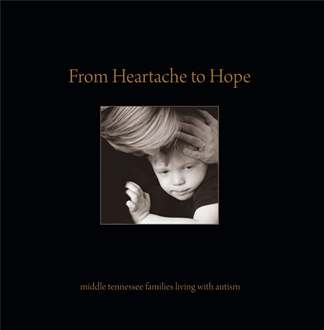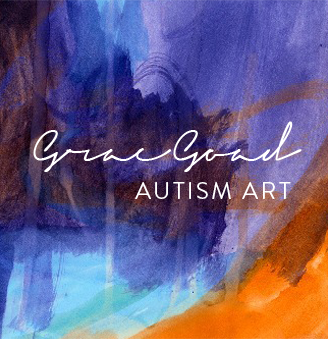My intuition told me not to say it. I'm glad I listened. In time, my own child would be diagnosed with a disAbility and I got it that my good intentions may not have been received so warmly….
I admired my neighbor for many reasons. She also had a daughter with Down syndrome. I can't recall now exactly what I wanted to say to her but it was of the essence that she was blessed to have her special child that she was the right mother for her daughter. My intuition whispered repeatedly, each time I crafted my words that I wanted to deliver my friend: Maybe it's not a good idea to say that! I don't know how it will be received, or, worse, my words may be heard as offensive. Maybe she doesn't consider herself blessed. Her job is not easy.
Some time after I released my intention to "say something kind," I saw this mother frantically yelling her daughter's name while walking up the hill behind their family's home. Her eyes scanned the street. Her daughter had wandered off and no one could find her. Her siblings joined the search and called their sister's name as they ventured in different directions from one another. As she breathed shallow, panicky breaths, and impatiently swiped fallen hair strands from her sweaty forehead., my neighbor exclaimed: "I'm too old for this!" "I'm too old for this!"
Soon, I would know that it would not have been cool, regardless of my intent, to say such words to my friend. Soon friends, acquaintances, people just met, even strangers would comment to me well-meant words with enough weight to wound and crush if I let it.
I can remember the first few times something was said. As I shared the news of Grace's diagnosis, another neighbor blurted: "There but for the grace of God go I!" Huh?! I looked at her wide-eyed, disbelieving, gaped mouth and speechless. Did she really mean that "the sky God" had shown her favor by sparing her own child the diagnosis of autism and I had not been likewise?
The second vivid memory was a curmudgeon of sorts, an anthoposophist, who had observed my child at her Waldorf preschool. "You know," he said, looking me sternly in the eye, "that your daughter is here to teach you a lesson."
Yes. I knew that. I knew even then at the launch of our journey that she would teach me more than I would ever teach her. I got it. I get it. But what he didn't get is that his statement could easily be perceived (and was) as callous.
So here's a little special needs talk about proceeding with caution when approaching a parent of a child with a disAbility when we wish to say some words we deem as comfort. Stop and check within. Sometimes words are offered up because it is the observer who feels dis-ease. How are you perceiving this person's life? As unbearable or distasteful or a pity-ing challenge? Consider that, as observers, we often do not know the following:
Where is the parent spiritually? Are they struggling to find God in all of this? Do they believe God cursed them? When it comes to "cures," remedies and fix-it's, what has this parent tried? What trials of fire have they journeyed through already? Most likely they are well seasoned. They may not be open to everyone's suggestions. They may be so embeded in their grief that they cannot talk about their child. Especially with people they do not know well. And, they mostly likey are inundated with truckloads of information.
And as to calling the parent blessed…that parent may not think so. As to "awfulizing" with the parent: maybe they do not see this as awful but as simply their child. Assume nothing. God chose you? Oh, really? So God gives out cancer to little children? "I don't see how you do it! You're an angel." Oh, really? Does that mean my child is a little devil?
If you must say something, consider: I admire how you relate to your child. I enjoy seeing how your child expresses his/her love. Is there something you admire about the child? These will communicate that you are observer of ofted a very special bond, of the challenges. That is enough.You can also inquire and watch the response. Ask if they are open to talking about their child. Tell them you'd like to know more so you can understand. While some parents will not want to do this, many parents of children with autism, particularly, welcome the opportunity when it is handled with respect and from a place of wanting to understand.
Proceed with caution.
Photo: Bill Bangham





Thank you Leisa! Well said, and needed to be said — and repeated.